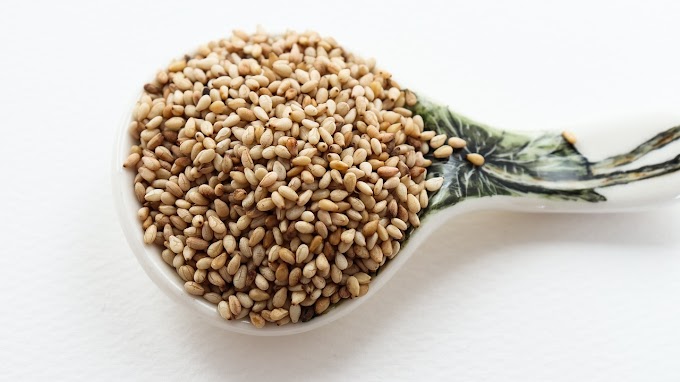Walking: The Health Benefits And Joy
Introduction
Walking is one of the simplest and most effective forms of exercise, offering a multitude of health benefits. It's a low-impact activity that's easy to incorporate into your daily routine, suitable for people of all ages and fitness levels. In this article, we'll delve into some of the benefits of walking and how it can improve your overall well-being.
Improves Cardiovascular Health: Walking is a great way to enhance your cardiovascular well-being. Increasing your heart rate strengthens your heart and improves blood circulation, thereby reducing the risk of developing heart disease, stroke, and other cardiovascular conditions.
Aids Weight Management: Walking is an excellent method for managing your weight. By burning calories, it assists in weight loss and maintaining a healthy body mass index (BMI). It's a fantastic option for individuals unable to engage in high-intensity workouts due to health issues or physical constraints.
Reduces Stress and Anxiety: Walking can be an effective way to reduce stress and anxiety. It releases endorphins, the body's natural mood elevators. Walking in natural surroundings or a peaceful environment can be particularly beneficial, aiding relaxation and mental clarity.
Boosts Immune System: Regular walking can boost your immune system, making you less susceptible to illnesses such as the flu or common cold. It increases the production of white blood cells, which combat diseases and infections.
Improves Bone and Joint Health: Walking is a weight-bearing exercise that can enhance bone and joint health. It strengthens your bones and muscles, reducing the risk of osteoporosis and joint pain. Walking also improves flexibility and mobility, making it easier to perform daily tasks.
Enhances Cognitive Function: Walking has been shown to enhance cognitive function, including memory, attention, and problem-solving. It increases blood flow to the brain, which can improve brain function and reduce the risk of cognitive decline and dementia.
Boosts Energy Levels: Walking serves as a natural energy booster. It increases blood flow and oxygen supply to your muscles and organs, leaving you feeling more energized and alert. A brisk walk in the morning can be an excellent way to start your day.
In conclusion, walking is a simple and effective way to improve your overall health and well-being. It offers numerous benefits, including improved cardiovascular health, weight management, reduced stress and anxiety, boosted immune system, improved bone and joint health, enhanced cognitive function, and increased energy levels. So, lace up your shoes and take a walk today!
How to Start Walking
Walking is one of the easiest and most accessible forms of exercise available. Not only is it a great way to improve your physical health, but it can also help reduce stress, improve mental clarity, and boost your overall well-being. If you're new to walking or looking to get started, here are some tips to help you begin.Set a Goal: One of the best ways to start walking is to set goals. This can be a distance, time, or step-count goal. Start small and gradually increase your goal over time. A good starting point for many people is aiming for a 30-minute walk three to four times a week.
Invest in Good Shoes: The right shoes can make a significant difference when it comes to walking. Look for a pair of shoes that are comfortable, supportive, and fit well. Don't hesitate to try out several pairs to find the perfect fit.
Start Slow: If you're new to walking, it's essential to start slowly. Begin with a short walk, even just 10 or 15 minutes at a time, and gradually increase your time or distance over time. This will help to avoid injury and build endurance.
Warm-Up: Before you start your walk, take a few minutes to warm up your muscles. This may include some gentle stretches or walking at a slower pace for the first few minutes.
Find a Walking Buddy: Walking with a companion or family member can make the experience more enjoyable and help keep you accountable. If you don't have someone to walk with, consider joining a walking group or signing up for walking events.
Track Your Progress: Keeping track of your progress can help keep you motivated and on track. This can be as simple as writing down the distance or time of your walk in a journal or using a fitness app or wearable device to track your steps.
Stay Safe: When walking, it's important to be aware of your surroundings and take steps to stay safe. This may include walking in well-lit areas, wearing reflective clothing if walking at night, and carrying a cell phone in case of emergencies.
Health Benefits and Joy of Walking
Walking is a simple and effective way to improve your physical and mental well-being. By following these tips and starting gradually, you'll be able to incorporate walking into your daily routine and begin reaping the many benefits it has to offer.Improves Cardiovascular Health: Walking on a consistent basis can help strengthen your heart, lower blood pressure, and improve circulation, thereby reducing the risk of cardiovascular diseases such as heart attack and stroke. It is an excellent way to keep your heart healthy and strong.
Aids in Weight Management: Walking can be an effective tool in weight management as it helps burn calories and increases metabolism. Regular walking, especially when combined with a balanced diet, can contribute to maintaining a healthy body weight and reducing the risk of obesity-related complications.
Enhances Mental Well-being: In addition to its physical benefits, walking also has a positive impact on mental health. It can alleviate symptoms of depression and anxiety, promote a sense of well-being, and improve overall mood. Taking a stroll in natural surroundings can provide a calming effect and reduce feelings of stress.
Strengthens Muscles and Joints: As a weight-bearing exercise, walking contributes to the strengthening of muscles and bones, reducing the risk of osteoporosis and improving overall bone density. It also promotes better joint health, making it an ideal exercise for individuals with joint-related conditions.
Enhances Respiratory Health: Walking can improve lung function and capacity, making breathing more efficient. It aids in the circulation of oxygen throughout the body, helping to improve overall respiratory health and reduce the risk of respiratory ailments.
Promotes Longevity: Studies have shown that regular walking is associated with increased life expectancy. By incorporating walking into your daily routine, you can potentially improve your overall health and increase your chances of living a longer and healthier life.
Improves Digestion: Walking can aid in digestion by stimulating the muscles in your abdomen. It helps to regulate bowel movements and can alleviate symptoms of constipation, promoting a healthier digestive system.
Enhances Sleep Quality: Engaging in regular physical activity, such as walking, can contribute to better sleep quality. It helps to regulate the body's circadian rhythm, leading to improved sleep patterns and overall sleep hygiene.
By incorporating walking into your daily life, you can experience these numerous health benefits and lead a more active and fulfilling lifestyle. Whether you choose to walk in a park, around your neighborhood, or on a treadmill, the key is to make walking a regular part of your routine and enjoy the positive impacts it can have on your overall well-being.







